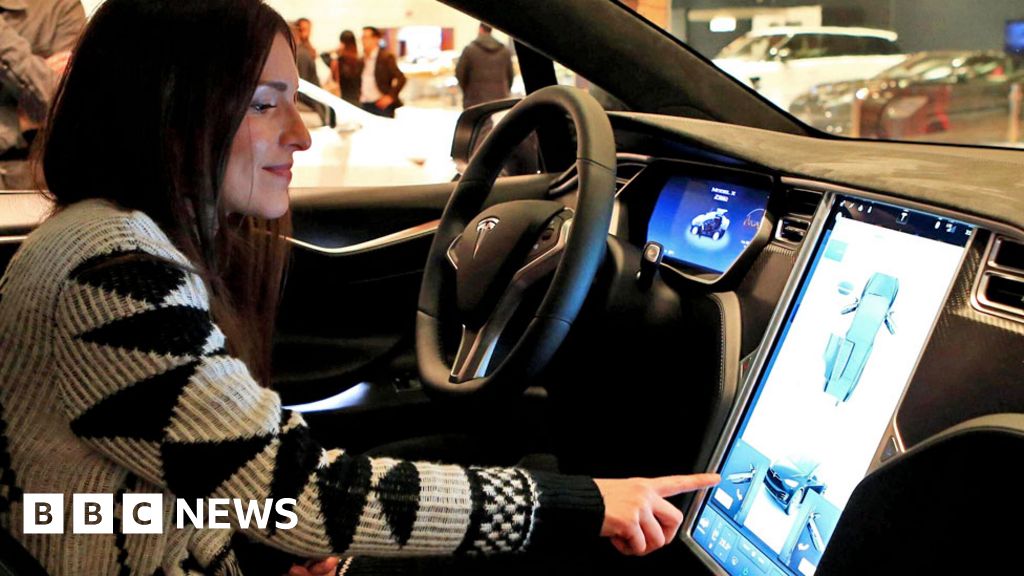Thanks for the info Mike. Not saying you're wrong but where did you get that info? Because energy density of batteries is far lower than hydrogen. I agree with you that making hydrogen using the electrical grid would be very inefficient...but batteries are already very inefficient.
Hydrogen weighs near nothing, all the weight are in its tanks and has 3 times more energy than gasoline. When used as HH in vehicles, the energy does decrease, but its energy density declines to about 1/2 of gasoline.
Meanwhile, Lithium batteries energy density is about 100 times less than gasoline. Batteries are very inefficient.
Hydrogen has much more potential than batteries. (Google for proof)
Anyhow, wouldn't it of been nice if mfrs continued to clean up gas engines? Toyota made a gas engine which cleans the air. Air coming out of the tailpipe is cleaner than the air in most cities. The carbon captured could be used as energy. Only problem is the exhaust filter has to be changed every 5000 miles and costs $1000.
Still, its better than any electric vehicle.
You have to consider the energy density of hydrogen gas by volume, which varies greatly with the pressure that it is stored at, not the energy density by mass (which would be significant if it was being carried as a liquid). So you can't make a blanket statement that the energy density of hydrogen is better than batteries. And now we're talking about compressed hydrogen gas in a tank, not stored in a hydride. As I explained, that is a complete nonstarter because it negates any supposed benefits of hydrogen over batteries (weight and refueling time). That is why no manufacturer is considering hydride storage.
I have done lots of research on this, if you couldn't tell.... much more than you'd get from a few minutes on Google. I have read many articles on the current state of hydrogen as a fuel over the years. Any sources that actually crunch the numbers, not just cheerleading puff pieces that make vague claims, prove that the economics don't work out in favor of hydrogen. Improved technology and economies of scale isn't going to tip the scales in favor of hydrogen either. The costs of generation, compression, storage and transport of hydrogen are well known to industry experts.
A very good source is a chemical process expert named Paul Martin, whom I follow on LinkedIn. I highly recommend reading his posts.
Chemical process development consultant focusing on new processes for the decarbonization… · Experience: Spitfire Research Inc. (www.spitfireresearch.com) · Location: North York · 500+ connections on LinkedIn. View Paul Martin’s profile on LinkedIn, a professional community of 1 billion members.

www.linkedin.com
I read yet another article just today that confirmed once again that the cost per mile travelled of a hydrogen fuel cell vehicle will be 3x as much as an EV, if you use the same source of electricity (same cost per kWh) to charge an EV battery vs using it for electrolysis of water to generate H2 and then compressing that H2. This one is a bit melodramatic in parts, but it is just the latest of many I have read on this, which came to the same logical conclusion.
Support CleanTechnica's work through a Substack subscription or on Stripe. Improbable and unrealistic scenarios are excellent tools to explore the odder aspects of our universe. Schrödinger’s cat being both alive and dead is a case in point. The trolley problem which had a massive resurgence in...

cleantechnica.com
Here's another article, with statistics from VW. They are developing EVs and not hydrogen fuel cell vehicles because they also concluded that hydrogen would require 2-3x as much energy to travel the same distance vs an EV.
Volkswagen recently released a quite interesting comparison of the battery-electric and hydrogen fuel cell path to zero-emission mobility.

insideevs.com
Here's another informative article I read on the subject, particularly how the fossil fuel industry is pushing hydrogen. This author made a shout out to Paul Martin as well.
As Liebreich says, it will take until 2030 for the hype to die down, because that's how long it takes to deprogram a cult.

cleantechnica.com
Here is a summary of a report on Japan's attempt to convert their energy infrastructure to hydrogen. Their conclusion is that they have spent a lot of money on the wrong things, such as transportation, which has been a failure.
Seemed like a good idea at the time.

www.popularmechanics.com
I've read other articles that said that the basis of Japan going with hydrogen over EVs in the first place wasn't because hydrogen was superior, but because hydrogen cars would prop-up their existing auto parts businesses more than EVs would, and Japan still has a philosophy of providing their workers with jobs for life. Also, Toyota's CEO was forced to step down in shame because he admitted that he pushed the company to develop hydrogen cars, completely ignoring EVs even though they could've had a head start by leveraging their experience building hybrids, and now they are way behind in the EV market.
Gas engines today are a getting to a Rube Goldberg level of complexity with their emissions systems, stop/start systems, cylinder deactivation systems, variable timing systems, etc etc. These are making them unreliable and difficult and expensive to repair. My brother is a mechanic and he's told me all kinds of horror stories about these systems failing at fairly low mileage and the repair parts costs. It's not going to get any better.
 cleantechnica.com
cleantechnica.com

 cleantechnica.com
cleantechnica.com


 www.halifaxexaminer.ca
www.halifaxexaminer.ca

